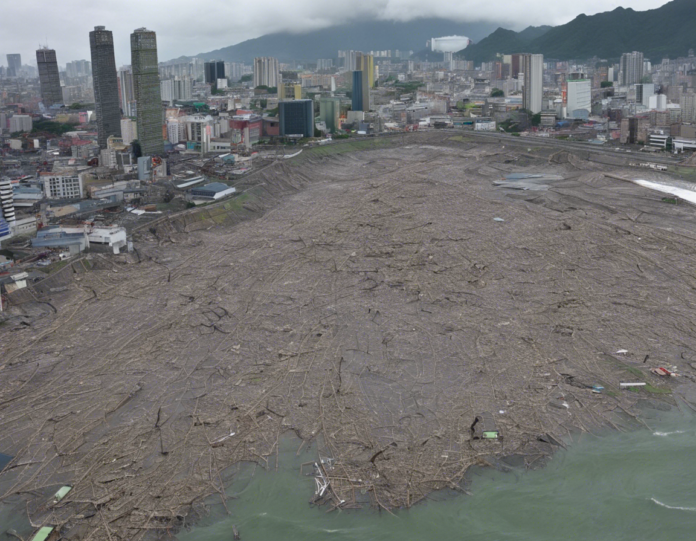On October 21, 2021, a devastating earthquake struck near the coast of Taiwan, shaking buildings and sending people fleeing into the streets. The earthquake, with a magnitude of 6.5, prompted officials to issue a tsunami warning, heightening fears and causing widespread panic among residents and tourists alike.
The Earthquake
The earthquake originated about 19 kilometers off the eastern coast of Taiwan, near the town of Hualien. The tremor, which lasted for several minutes, caused significant damage to buildings and infrastructure in the region.
Seismic activity is not uncommon in Taiwan, as the island nation sits on the Pacific Ring of Fire, known for its high levels of tectonic activity. The collision of the Philippine Sea Plate and the Eurasian Plate in the region makes Taiwan particularly susceptible to earthquakes.
Tsunami Warning
Following the earthquake, authorities issued a tsunami warning for coastal areas, alerting residents to the potential for large waves to strike shorelines. The warning advised people to move to higher ground and stay away from the coast until further notice.
Tsunamis are often triggered by underwater earthquakes and can cause massive destruction, especially in coastal communities. The threat of a tsunami added to the chaos and fear already gripping the region in the aftermath of the earthquake.
Response Efforts
Emergency response teams were quickly mobilized to assess the damage and provide assistance to those in need. Rescue teams worked tirelessly to search for survivors trapped in collapsed buildings and ensure the safety of residents in affected areas.
The government of Taiwan activated its disaster response protocols and established shelters for those displaced by the earthquake. Hospitals were placed on high alert to handle an influx of injured individuals, and emergency services were on standby to provide support as needed.
Staying Safe During Earthquakes and Tsunamis
In the event of an earthquake or tsunami, it is crucial to prioritize safety and follow the guidance of local authorities. Here are some tips to help you stay safe during these natural disasters:
- Drop, Cover, and Hold On: During an earthquake, drop to the ground, take cover under a sturdy piece of furniture, and hold on until the shaking stops.
- Evacuation Plan: Have an evacuation plan in place that includes a designated meeting point for your family or household.
- Emergency Kit: Prepare an emergency kit with essential supplies, including water, non-perishable food, medication, a flashlight, and a first aid kit.
- Stay Informed: Monitor local news outlets and official channels for updates and instructions from emergency services.
Frequently Asked Questions (FAQs)
-
What causes earthquakes in Taiwan?
Earthquakes in Taiwan are primarily caused by the collision of tectonic plates in the region, specifically the Philippine Sea Plate and the Eurasian Plate. -
How common are tsunamis in Taiwan?
Tsunamis are a possibility in Taiwan due to its location on the Pacific Ring of Fire, but they do not occur frequently. -
What should I do during an earthquake?
During an earthquake, it is important to drop to the ground, take cover, and hold on to protect yourself from falling objects and debris. -
Is it safe to return home after an earthquake?
It is advisable to wait for authorities to confirm that it is safe to return home after an earthquake, as aftershocks or secondary hazards may pose risks. -
How can I help with disaster relief efforts in Taiwan?
If you wish to contribute to disaster relief efforts in Taiwan, consider donating to reputable organizations conducting rescue and recovery operations in the affected areas.
As Taiwan grapples with the aftermath of the recent earthquake and tsunami warning, it is vital for individuals and communities to come together to support one another and rebuild in the face of adversity. Prioritizing safety, preparedness, and resilience is key to mitigating the impact of such natural disasters and working towards a safer future for all.
